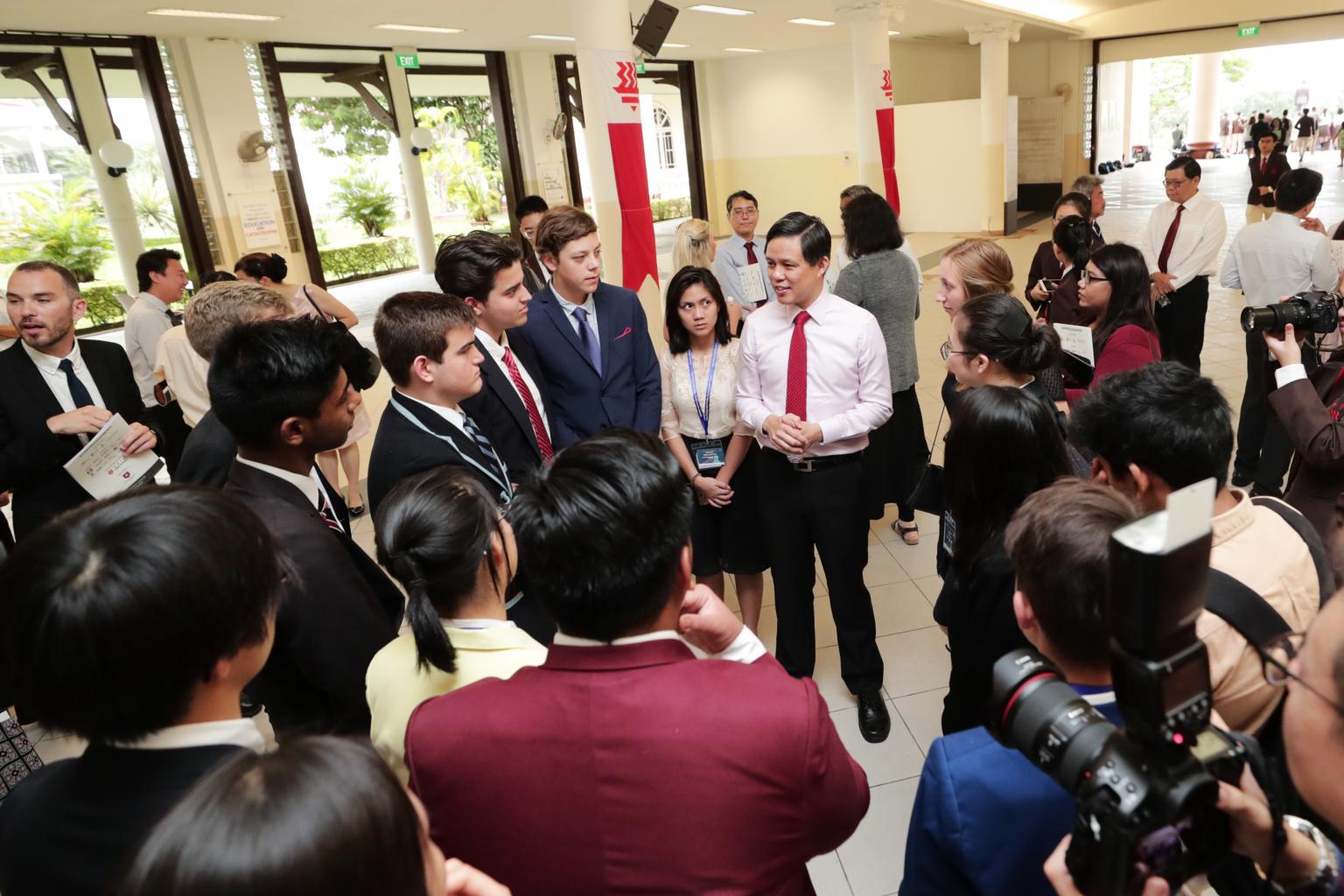Building bridges, not walls, vital to progress: Chan Chun Sing
Sign up now: Get ST's newsletters delivered to your inbox

Trade and Industry Minister Chan Chun Sing (in pink) encouraged student leaders to have the courage and leadership to build bridges and realise the benefits of a globally integrated system.
ST PHOTO: KELVIN CHNG
SINGAPORE - The world has made tremendous progress due to the "connectivities of ideas, technology and trade". It is up to the younger generation to decide if it will build further bridges or erect walls that will stall progress.
Addressing a group of 93 students and teachers from around the world at Hwa Chong Institution (HCI) on Monday (July 22), Trade and Industry Minister Chan Chun Sing said that their presence in Singapore was a testimony to links forged in the past few decades.
When Mr Chan was studying at Britain's Cambridge University almost 30 years ago, he communicated with his family only once a month by aerogramme - a piece of paper combining a letter and envelope that is sent via airmail, which took two weeks to reach Singapore.
Today, however, people communicate instantaneously through Skype and WhatsApp, while even developing countries are using mobile technology instead of landlines.
The rise of mobile banking is serving people in remote areas while medical research, manufacturing and even film production have all become increasingly cross-border in nature.
But with greater connectivity comes disruption, and it is important for countries to help their businesses and workers adjust to the new reality. "Do we embrace integration or do we close our borders?" asked Mr Chan, noting that governments in the past faced the same pressures as they do today.
"In the 1920s, we didn't make a wise choice and ended up with the Great Depression, when countries and economies were fragmented."
He was speaking at the opening ceremony of the 13th Hwa Chong Asia Pacific Young Leaders Summit, an annual event where student leaders from around the world visit key institutions in Singapore and meet government officials.
Mr Chan encouraged the audience to have the courage and leadership to build bridges and realise the benefits of a globally integrated system.
"Many countries are unable to muster the resources and political will to evolve new business models and help their people acquire new skills," he said. "When people are left behind, they resist the connectivities of ideas, technology and trade. This is why today we see a pushback against globalisation.
"If the world continues to be protectionist and fragmented, successive generations will not be able to enjoy the prosperity and progress as we do now."
The 27 participating schools from the Asia-Pacific, South Africa, United Kingdom and the United States are here until Friday.
They will have tea at the Istana with President Halimah Yacob later on Monday and attend the third Hwa Chong Centennial Insights series on Wednesday. Singapore's former foreign minister George Yeo and Harvard University Professor Michael Puett will speak at this year's Insights on the theme "Wisdom of the East and West: A Global Future".


